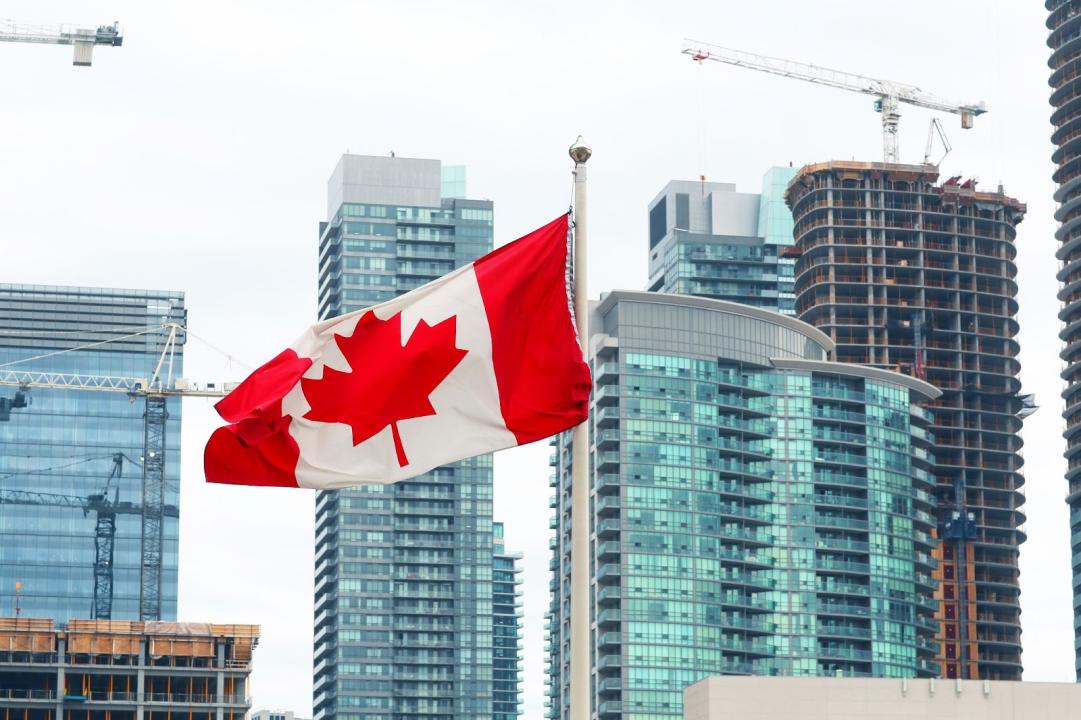Ever wonder if the condo you want to buy is really as good as it looks? 🤔
Buying a place to live is super exciting! Maybe you’re looking for your very first home in Mississauga, a cool condo downtown in the GTA, or perhaps a cozy spot in Milton, Georgetown, Guelph, or Acton. Maybe you’re selling your condo and moving on to something new. Wherever you are in your journey, if a condominium is involved, there’s a special paper you absolutely NEED to know about.
It’s called a Condo Status Certificate, and some people don’t pay enough attention to it. Big mistake! Think of it like getting a check-up for the condo building itself. It tells you if the building is healthy or if it has some hidden problems. Knowing this before you buy or sell is super, super important.
So, what is this paper all about? Why should you care? Let’s dive in and make it super simple!
What is a Status Certificate Exactly?
Okay, imagine you’re buying a used toy car. You’d want to know if it runs well, if any parts are broken, or if the person selling it still owes money on it, right?
A condo status certificate is kind of like that, but for a condo building. It’s a special package of papers put together by the people who manage the condo building (the Condo Corporation). It gives you a snapshot of how the building is doing – mostly looking at its money and its rules.
In Ontario, the law says sellers often need to provide this package to potential buyers as part of the deal. It’s one of the most important condo buying legal documents you’ll see. This package is officially called the ‘Status Certificate’ under the Condominium Act in Ontario. So, when you hear people talking about the condo status certificate Ontario rules, this is what they mean!
It tells you things like:
- Does the condo building have enough money saved up for big repairs?
- Are the current owners paying their condo fees on time?
- Are there any big problems or fights (like lawsuits) happening?
- What are the rules you’ll have to follow if you live there?
It’s like a health report card for the entire condo corporation and the specific unit you’re interested in. Pretty neat, huh?
Why is Status Certificate Important? (Hint: It Saves You Big Headaches!)
Okay, picture this: You buy a beautiful condo in Georgetown. You love the view, the pool is amazing, and it’s close to everything. A year later, BAM! You get a huge bill for thousands of dollars. Why? Because the condo building needed a new roof, and they didn’t have enough money saved up. Everyone who lives there has to pay extra. Ouch!
THIS is exactly why the status certificate is so important. It helps you avoid nasty surprises like that!
Here’s why you absolutely need to look at it carefully:
- Know the Money Situation: It shows you the condo’s budget. Does it have enough money coming in (from condo fees) to pay its bills? More importantly, does it have a “reserve fund”? That’s like a savings account for big future repairs (roof, windows, elevators, etc.). If this fund is low, you might face those big extra bills we talked about (called special assessments).
- Check for Problems with Your Unit: The certificate confirms how much the monthly condo fees (common expenses) are for the specific unit you want to buy. It also says if the current owner is behind on payments. If they are, the condo corporation could try to get that money from the new owner (that’s you!). You need to make sure this is cleared up before you buy.
- Understand the Rules: Do you have a pet? Want to rent out your condo later? Planning to paint your front door bright pink? The status certificate package includes the condo’s rules (Declaration, By-Laws, and Rules). These tell you what you can and cannot do. Better to know before you buy if your furry friend isn’t allowed or if there are rules you can’t live with.
- Uncover Big Issues: Is the condo corporation being sued? Is it suing someone else (like the builder for problems)? Are there any big disagreements happening? The status certificate should mention these things. Lawsuits can be expensive and risky for the condo owners. This is a major part of understanding condo ownership risks.
- Confirm Insurance: It tells you about the condo corporation’s insurance. This covers the building’s common areas, but you’ll still need your own insurance for your unit and belongings.
- Peace of Mind: Knowing all this information gives you confidence in your purchase. Or, it might warn you to walk away from a potentially bad situation.
Whether you’re buying in the busy GTA market or quieter spots like Acton, the importance of the condo status certificate doesn’t change. It protects YOU!
Reading a Condo Status Certificate: What’s Inside the Packet?
Getting the status certificate package feels a bit like getting a big, important school project. It has lots of pages! Don’t worry, you don’t need to be a detective to understand it, especially if you have help (more on that later!).
Here’s a peek at what you’ll usually find inside:
- The Actual Certificate Page: This is a summary page, often just two pages long, signed by the condo corporation. It includes key info like the monthly fees for the unit, if the current owner owes money, and sometimes mentions the reserve fund balance.
- The Condo Declaration: Think of this as the condo’s constitution. It legally creates the condo and outlines the boundaries of the units and common areas (like hallways, pools, parking garages). It also tells you what parts are your responsibility and what parts the corporation takes care of.
- Condo By-Laws: These are rules about how the condo corporation is run. How are board members elected? How do meetings work? How are condo fees collected? It’s all in the by-laws.
- Condo Rules: These are the day-to-day rules for living there. Things like pet restrictions, noise limits, rules about using the gym or pool, parking rules, and what you can (or can’t) do with your balcony or backyard area. Read these carefully!
- The Budget: Shows the condo corporation’s planned income (from fees) and expenses (maintenance, cleaning, security, management) for the year. Is it balanced? Are costs going up fast?
- Financial Statements: These are like the condo’s report cards from the past year, usually prepared by an accountant. They show the actual money details – how much was spent, how much is saved. You’ll want to look at the health of the reserve fund here.
- Reserve Fund Study Summary: This is HUGE. A special company usually does a study every few years to figure out how much money the condo should have saved for future repairs. The status certificate will often include a summary saying if the condo is following the plan and if the reserve fund is healthy. If the amount saved is much lower than the study recommends, that’s a red flag! 🚩
- Insurance Certificate: Shows proof that the condo corporation has insurance for the building and common areas.
- Management Contract Summary (sometimes): If the condo is run by a professional management company, sometimes details about their contract are included.
- Minutes of Meetings (sometimes): Sometimes recent meeting minutes are included, which can give you clues about current issues or discussions.
- Information About Lawsuits: Any current lawsuits involving the condo corporation must be disclosed.
Phew, that’s a lot! But remember, each piece tells part of the condo’s story.

Status Certificate Fees Ontario: Who Pays and How Much?
Okay, getting this important package isn’t free. The Condominium Act in Ontario sets the rules for this.
- Who Orders It? Usually, the seller or their real estate agent orders the status certificate from the condo corporation or its management company.
- Who Pays? The seller typically pays the fee. It’s part of the cost of selling their condo.
- How Much Does It Cost? The law in Ontario currently sets a maximum fee that condo corporations can charge for a standard status certificate. As of recent rules, this fee is usually $100 (including HST). They have 10 days to provide it once requested and paid for.
- Need it Faster? If a seller needs it quicker than 10 days, the condo management might charge an extra “rush fee,” which can vary.
So, while there is a cost, it’s a small price to pay for the incredibly valuable information inside! The status certificate fees Ontario are regulated to keep them reasonable.
Real Estate Lawyer Status Review: Why Your Lawyer is Your Best Friend Here!
Remember all those papers we listed inside the status certificate package? It can feel overwhelming, right? This is where a good real estate lawyer comes in. They are experts at this!
When you make an offer to buy a condo, it almost always includes a “condition” that allows your lawyer time (usually a few days) to review the status certificate. This is super important! Don’t skip this step!
Here’s why the real estate lawyer status review is critical:
- They Know What to Look For: Lawyers who specialize in real estate, especially in places like Mississauga, Guelph, or the wider GTA condo market, have seen hundreds of these. They know exactly what red flags to watch out for – like a low reserve fund, confusing rules, hidden owner responsibilities, or signs of potential lawsuits.
- They Understand “Legalese”: Some parts of the documents (like the Declaration) can be written in tricky legal language. Your lawyer can translate this into plain English for you.
- They Check for Deal-Breakers: Is there something in the certificate so bad that you should maybe walk away from the deal? Your lawyer will advise you based on the risks they find. For example, if the building needs $5 million in repairs but only has $500,000 saved, your lawyer will definitely point that out!
- They Can Ask Questions: If something is unclear, your lawyer can sometimes ask the condo management company for more information.
- They Protect You: Their job is to look out for YOUR best interests. They will give you a clear summary of the good and the bad, helping you make a smart decision.
Think of your lawyer as your expert guide through the jungle of condo documents. Their fee for reviewing the status certificate is part of their overall fee for handling your purchase, and it’s worth every penny.
What Happens If Status Certificate Is Bad? Uh Oh!
So, your lawyer reviews the certificate and calls you with… not-so-great news. What happens now?
A “bad” status certificate could mean different things:
- Very Low Reserve Fund: Not enough money saved for repairs. This almost guarantees you’ll have to pay extra money later (a special assessment).
- Ongoing Lawsuits: The condo is suing someone (like the builder) or being sued (perhaps someone slipped and fell). Lawsuits cost money and create uncertainty.
- Lots of Owners Not Paying Fees: If many people aren’t paying their share, the condo might not have enough money to operate properly.
- Rules You Can’t Live With: Maybe they have a strict no-pets rule, and you have a beloved dog. Or they don’t allow you to rent out your unit, and that was your plan.
- Major Repairs Needed Soon: Even if the reserve fund looks okay now, the documents might show huge repairs are needed very soon, which could drain the fund quickly.
If your lawyer finds serious issues (condo ownership risks), you usually have a few options, thanks to that “condition” in your offer:
- Walk Away: If the problems are too big or too risky, you can decide not to buy the condo. Because your offer was conditional on lawyer review, you can usually back out and get your deposit back. This is often the smartest move if there are major financial or legal problems.
- Try to Negotiate: Maybe the issue is something the seller can fix. For example, if the current owner owes money, you can insist they pay it before you close the deal. For bigger building issues (like a low reserve fund), there’s usually not much a seller can do, but you could try to negotiate a lower price (though this is less common for building-wide issues).
- Accept the Risk (Carefully!): If the issues are minor, or if you understand the risks and are willing to accept them (maybe the condo is priced really low because of the issues), you might still decide to go ahead. Make sure you understand exactly what you’re getting into!
The key is: the status certificate review gives you a choice before it’s too late.
Pre-construction Condo Status Report: Is it Different?
What if you’re buying a condo that hasn’t even been built yet? This is common in hot markets like the GTA and surrounding areas. Do you get a status certificate then?
Well, kind of, but it’s different. When you buy “pre-construction,” there’s no existing condo corporation with a history, budget, or reserve fund yet. Instead, the builder gives you a big pile of documents called a Disclosure Statement.
This Disclosure Statement includes:
- A proposed budget for the first year after the condo is registered.
- Proposed rules and by-laws.
- Details about the unit and common areas.
- Information about when the building is expected to be ready.
Important: A proposed budget is just a guess by the builder. Often, the actual condo fees in the first year or two after the building is finished end up being higher than the builder estimated. Also, there’s no reserve fund history to check.
You still need a lawyer to review these pre-construction documents very carefully. They will look for potential issues, explain your risks, and highlight important dates and clauses.
Once the condo building is built and the condo corporation is officially registered, then you can get a proper condo status certificate like the ones we’ve been talking about. If you buy after the building is registered but still very new, the status certificate will exist, but it won’t have much history yet (like long-term financials or a detailed reserve fund study).
So, for a pre-construction condo status report, you’re looking more at the planned future, while for an existing condo, you’re looking at the actual present and past.

Frequently Asked Questions (FAQ) about Condo Status Certificates
Let’s answer some quick questions you might still have:
- Q: How long is a status certificate valid for?
- A: Technically, it only guarantees the information is correct on the date it was issued. Things can change quickly! That’s why offers usually require the certificate to be recent, often obtained within the last 30 days before the offer or closing.
- Q: Can I, as a buyer, order the status certificate myself?
- A: Usually, the seller orders it because they are the current owner. However, anyone can technically request one if they pay the fee, but it’s standard practice for the seller to provide it.
- Q: I’m selling my condo. Do I HAVE to provide a status certificate?
- A: While the law doesn’t force you to provide one just to list your property, almost every single buyer’s offer will include a condition requiring you to provide a current one for their lawyer’s review. So, practically speaking, yes, you’ll need to get one to sell your condo.
- Q: What if the status certificate has a mistake?
- A: If the condo corporation makes a significant error in the certificate (like saying the owner owes no money when they do), the corporation can generally be held responsible for that information. This is another reason why having your lawyer review it is critical.
- Q: Does a townhouse complex need a status certificate?
- A: If it’s a condominium townhouse complex (where you own your unit but share ownership and costs for common areas like roads, roofs, or landscaping), then YES, it will have a condo corporation and you’ll need a status certificate. If it’s a freehold townhouse (where you own the house and the land it’s on with no shared condo fees), then no status certificate is involved.
Don’t Skip Your Condo Homework!
Buying or selling a condo is a big step! Whether you’re in bustling Mississauga, growing Milton, charming Georgetown, vibrant Guelph, friendly Acton, or anywhere across the GTA and Ontario, understanding the condo status certificate is key.
It might seem like just another piece of paper, but it holds vital clues about the financial health and rules of the condo community you’re thinking of joining or leaving. It helps you spot potential condo ownership risks before they become your expensive problems.
Remember these key things:
- The Status Certificate is a health check-up for the condo building.
- It reveals money details (fees, savings, debts) and rules.
- Why is status certificate important? It protects you from surprises!
- Always, always have your lawyer perform a real estate lawyer status review. This is crucial.
- Understand the status certificate fees Ontario (usually $100 paid by the seller).
- Know what happens if status certificate is bad – you usually have options to walk away.
Taking the time to understand this document is one of the smartest things you can do in your real estate journey.
What are your thoughts? Have you had experience with status certificates? Did you find any surprises? Share your story or ask your questions in the comments below! We’d love to hear from you! And if you found this helpful, please share it with others who might be buying or selling a condo!
Disclaimer: This blog post is for informational purposes only and does not constitute legal advice. Always consult with a qualified real estate lawyer for advice specific to your situation.



















